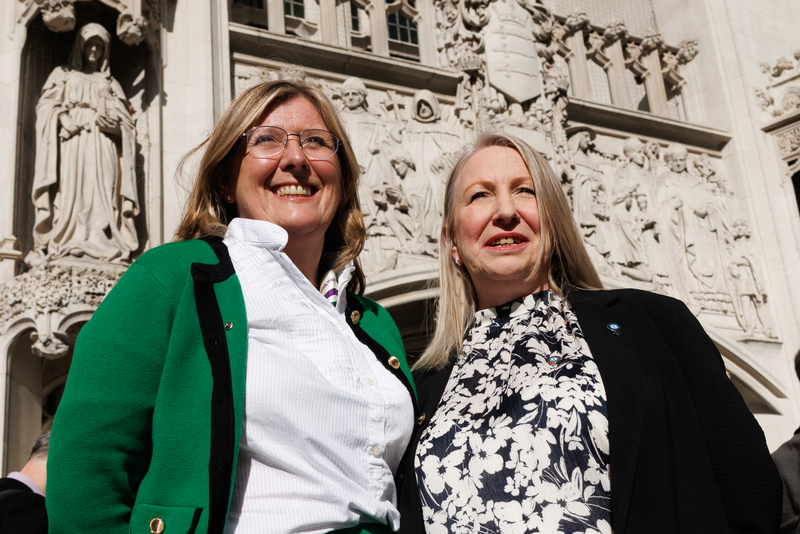The FCA has said it has charged Mrs Lisa Campbell with multiple criminal offences, including fraud by abuse of position and providing false or misleading information to the FCA to conceal her wrongdoing.
“Mrs Campbell was the sole director of Campbell & Associates Independent Financial Advice Ltd (Campbell & Associates), an FCA authorised financial advisory firm which operated under the name Campbell & Raffle Independent Financial Advice Ltd until November 2020,” the regulator said.
“The firm provided financial advice on investments, insurance, and pensions, but was not authorised to hold or control client money. The FCA alleges that between 1 April 2013 and 10 May 2023, Mrs Campbell misappropriated funds from clients on numerous occasions.”
“During the period, the FCA alleges that Mrs Campbell stole more than £2.3m ($2.89m), leading to significant financial losses for multiple victims, including family members, friends and a vulnerable child.
Mrs Campbell has been released on bail and will appear at Portsmouth Magistrates Court on 17 April 2025.
And in a separate enforcement action, the FCA has announced it has “fined Mako Financial Markets Partnership LLP (Mako) £1,662,700 ($2,089,974) for failing to ensure it had effective systems and controls to guard against financial crime.
“This eighth enforcement case brought by the FCA, concludes its investigations into cum-ex trading,” the regulator said in a press release.
“Working closely with EU and global law enforcement agencies, the FCA has imposed fines of more than £30m ($37.71m) in relation to this trading,” the press release adds.
According to the regulator, “Between December 2013 and November 2015, Mako executed purported over-the-counter equity trades on behalf of clients of the Solo Group, worth approximately £68.6 billlion ($86.23 billion) n Danish equities and £23.6 billion ($29.66 billion) in Belgian equities. Mako received commission of approximately £1.45m ($1.82m).”
“The trading was circular, which is highly suggestive of financial crime. It appears to have been carried out to allow the arranging of withholding tax (WHT) reclaims in Denmark and Belgium. Several individuals have now been convicted in Denmark as part of this scheme.”
The FCA has announced that, “on 10 February 2025, Nvayo Limited (Nvayo) entered special administration. Dane O’Hara, Alex Cadwallader and Andrew Poxon, all of Leonard Curtis (UK) Limited, were appointed as administrators.”
According to the regulator: “Nvayo is authorised by the FCA to issue electronic money (e-money) and provide payment services.
“On 8 August 2023, we told Nvayo it could not carry out any e-money services without our consent. We did this because we had serious concerns about Nvayo and its compliance with anti-money laundering rules.”
“In February 2024, the Upper Tribunal dismissed Nvayo’s application to suspend the restrictions we placed on it. The directors of Nvayo applied to court to place it into special administration because they concluded that the firm was insolvent.”
Regulation
The FCA said it “welcomes the final report of the Accelerated Settlement Taskforce and supports the UK market’s move to T+1 settlement.”
“The Accelerated Settlement Taskforce report provides a set of recommendations for the UK to move to a T+1 settlement cycle by 11 October 2027,” the regulator has said.
“On 6 February 2025, the Accelerated Settlement Taskforce published its final report recommending a detailed implementation plan for the UK to move to a T+1 standard for settling securities trades.”
“We have welcomed the recommendations, alongside the government and Bank of England. We support the transition to T+1 settlement in UK markets and call on industry to engage and start planning as soon as possible,” the FCA has said.
FCA chief executive, Nikhil Rathi has said: “We highlighted how the move to T+1 will make our markets more efficient and support growth in our recent letter to the Prime Minister. We will support industry as they move to T+1 and expect firms to engage and plan early.”
Consultation
The FCA and the PSR have published a joint report after their joint task force assessed the usage and impact of digital wallets in the UK.
“The use of digital wallets has rapidly grown in recent years with the proportion of card transactions using a digital wallet increasing significantly from 8% in 2019 to 29% in 2023,” the regulator has said.
The regulator has said, together with the PSR, it engaged extensively with businesses and representative groups, finding great benefits of digital wallets and also listening to concerns.
“We will also engage with the Treasury as part of our review of the Payment Services and Electronic Money Regulations to ensure the regulatory framework is future-proof,” the FCA has said.
“We will continue to embrace digital improvements that benefit consumers. This includes progressing work on open banking and contactless payments to boost competition and enhance the UK’s growth and competitiveness.”
Media
The FCA has provided some much needed clarification after recent media reports suggested it had decided to delete all ‘unnecessary’ emails from staff inboxes 12 months after they were received.
In a blog post, Ian Phoenix, Director, intelligence and digital at the FCA, has explained what the agency is doing and, more importantly, what it’s not doing in relation to staff emails.
“First, what we’re not doing. We’re not deleting evidence. We’re not hiding information. We’re not reducing transparency. There is no change to our policy of what constitutes a record and how long it should be saved for,” he has explained.
“What we are doing is modernising how we manage our records to make us a more efficient and effective regulator,” he added.
“Many of our records are already stored in a secure, shared repository. We want to make sure the same goes for all emails which may be records, for example, those which explain how a particular decision was reached.”
“That’s why any emails received after 1 April 2025 will be deleted from inboxes after a year. This gives staff plenty of time to assess whether the contents of an email are a record and – if they are – save them to the central shared drive.”















